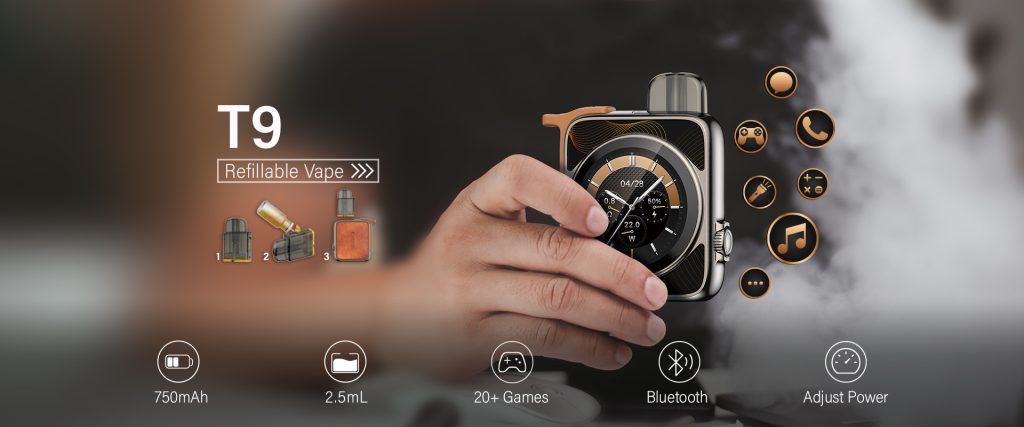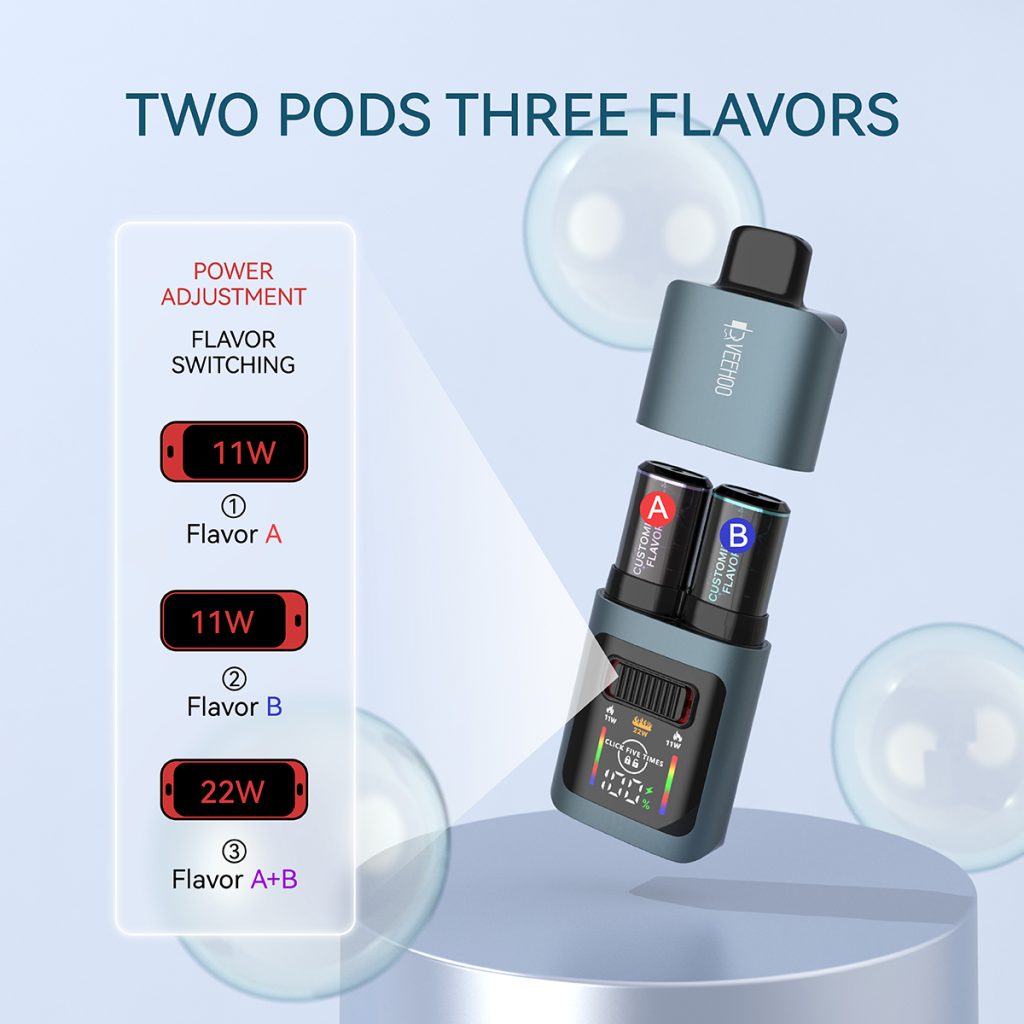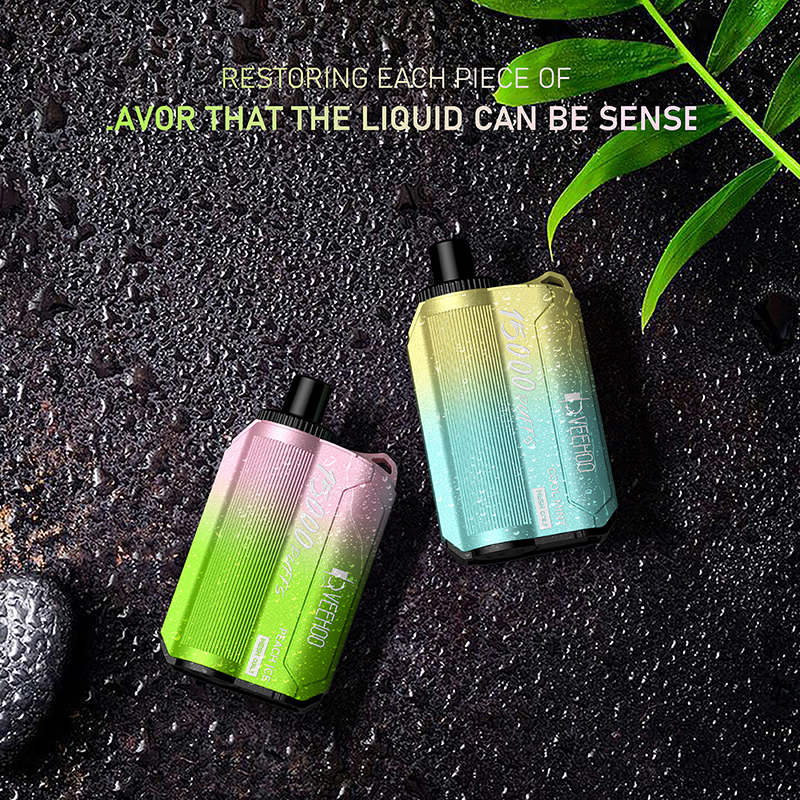In recent years, the global tobacco industry has been undergoing a profound transformation, with the traditional cigarette market gradually shrinking, while new tobacco products such as e-cigarettes and heated tobacco devices (HNB) have risen rapidly. Against this backdrop, Philip Morris International Mexico announced that the sale of its heated tobacco devices in Mexico is legal, in stark contrast to the e-cigarette ban. This statement not only triggered widespread discussion within the industry, but also provided a new perspective on the future direction of the Mexican tobacco market.
From January 18, 2025, the Mexican government has completely banned the use and sale of e-cigarettes, e-cigarettes and tobacco heaters. The introduction of this policy stems from concerns about the health risks of e-cigarettes and vigilance against their potential to become an “entry product” for teenagers to smoke. However, the implementation of the ban did not completely curb market demand, but instead gave rise to a huge underground market, resulting in tax losses and lack of supervision1. At the same time, Philip Morris International Mexico successfully obtained the legal right to sell heated tobacco devices (such as IQOS) in Mexico through legal means. The company stressed that heated tobacco devices and e-cigarettes are fundamentally different in terms of technical principles and health risks, and therefore should not be classified as the same type of product.

The working principle of heated tobacco devices is to release nicotine by heating rather than burning tobacco, thereby reducing the production of harmful chemicals. Philip Morris International positions it as a “harm reduction product” and plans to transform into a smoke-free company in 2025 and gradually phase out traditional cigarettes. This strategy has been supported by some experts in the Mexican market, who believe that heated tobacco devices can serve as an alternative for adult smokers rather than attracting new users.
Unlike Philip Morris International’s heated tobacco devices, e-cigarette brands such as VEEHOO face severe challenges in Mexico. Due to the full implementation of the ban, brands such as VEEHOO cannot enter the Mexican market through legal channels and can only rely on underground sales or cross-border trade. However, this illegal sales model not only fails to guarantee product quality, but may also increase public health risks. Despite this, as an internationally renowned e-cigarette brand, VEEHOO’s products still have significant advantages in user experience and technological innovation. For example, VEEHOO’s open system design allows users to customize the flavor and nicotine concentration of e-liquid, meeting the personalized needs of different consumers.
From a positive perspective, the difficulties faced by e-cigarette brands such as VEEHOO in Mexico have also spawned self-discipline and innovation in the industry. Many brands have begun to pay more attention to the safety and compliance of their products, such as improving product competitiveness by introducing child lock functions and reducing the content of harmful substances. 6 In addition, some e-cigarette companies are trying to communicate with the Mexican government to obtain legal sales licenses under a strict regulatory framework, similar to the success story of Philip Morris International.
Philip Morris International’s heated tobacco device IQOS has achieved remarkable success worldwide, with sales exceeding US$10 billion in 2023, even surpassing its traditional brand Marlboro. This achievement shows that the demand for harm reduction products among adult smokers is growing. In Mexico, the legal sale of IQOS has provided Philip Morris International with a new growth point, while also bringing positive impacts to local tax revenue and employment.

However, the legality of heated tobacco devices has also sparked controversy. Opponents believe that although IQOS reduces some harmful substances, its long-term health effects are not yet fully understood. In addition, some public health experts are concerned that the promotion of heated tobacco devices may blur the public perception that “smoking is harmful to health” and even attract non-smokers to try it. In response, Philip Morris International emphasized that its products are only for adult smokers and promised to avoid youth exposure through strict age verification and marketing restrictions.
The Mexican government’s ban on e-cigarettes and the legalization of heated tobacco devices form a sharp policy contrast. This phenomenon reflects the complexity and diversity of global tobacco regulation. On the one hand, the ban is aimed at protecting public health, especially youth groups; on the other hand, the open attitude towards heated tobacco devices provides more choices for adult smokers.
In the future, the Mexican tobacco market may show the following trends: With the continued investment of companies such as Philip Morris International, heated tobacco devices may gradually replace part of the traditional cigarette market. Unless policies are adjusted, the problem of underground sales of e-cigarettes will still exist, and the government and the industry need to jointly explore solutions. Mexico may draw on international experience to formulate more detailed classification and regulatory standards for new tobacco products.

Philip Morris International Mexico’s statement on the legal sale of heated tobacco devices is not only a commercial victory, but also provides new ideas for the transformation of the Mexican tobacco market. In this process, how to balance public health, market demand and policy supervision will become the focus of continuous discussion by all parties. For e-cigarette brands such as VEEHOO, despite the current severe situation, there is still a chance to win a place in the future through technological innovation and compliance efforts. In the wave of changes in the global tobacco industry, the experience of the Mexican market may provide important reference for other countries.
Tags: heated tobacco, ceramic atomizer core, fruit-flavored nicotine, veehoo vape
